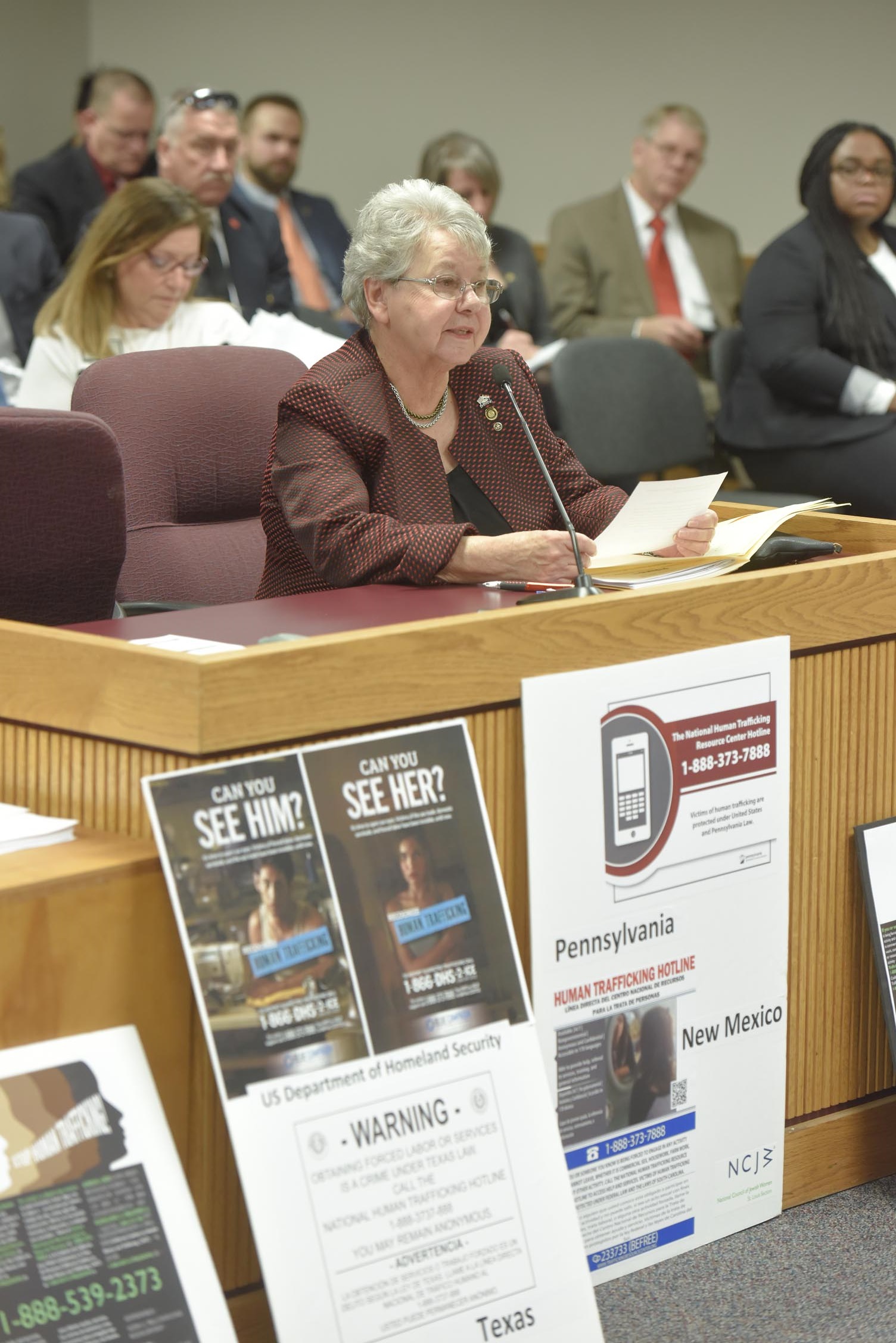The state House is again considering a bill that would require certain employers to display posters with information about human trafficking.

House Bill 261 is based on one of the recommendations made by the House Task Force on Human Trafficking. It’s sponsored by St. Louis Representative Cloria Brown (R).
28 other states have similar laws, and Brown developed her bill based on those.
The bill would require the Department of Public Safety to create the posters, and requires that it be displayed by hotels, motels, establishments “cited as a public nuisance for prostitution,” strip clubs or other “sexually oriented businesses,” airports, trains stations that serve passengers, emergency rooms, urgent care centers, women’s health centers, businesses that offer massages, bus stations, and privately owned facilities that offer food, fuel, showers, and overnight parking, such as truck stops.
The posters would have to be placed in or near the bathrooms or entraces of those businesses beginning March 1, 2018.
The signs must also be placed in businesses that offer “body work,” such as tattoo parlors. Ellen Alper with the National Council of Jewish Women in St. Louis said that is because victims are often forced to get tattoos.
“Sometimes traffickers tattoo their victims in order to let people know who they belong to,” said Alper.
Alper said in addition to informing victims, the posters are intended to inform members of the public.
The same proposal was part of a bill passed last year by the House that never came to a vote in the Senate. HB 261 was presented last week to the House Committee on Crime Prevention and Public Safety, which has not voted on it.